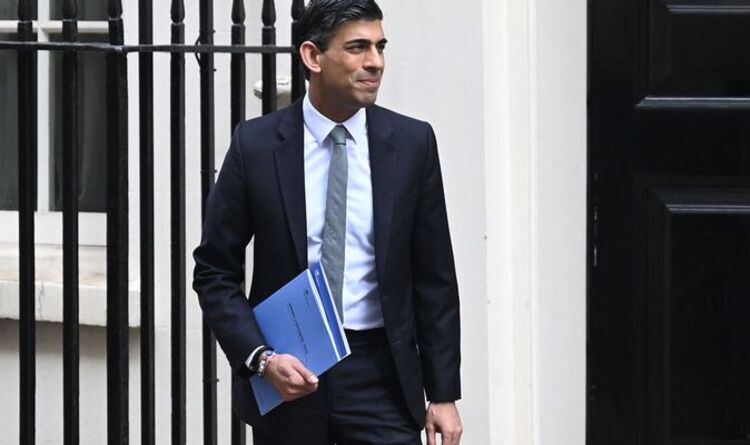Andrew Neil ridicules Rishi Sunak's Spring Statement
We use your sign-up to provide content in ways you’ve consented to and to improve our understanding of you. This may include adverts from us and 3rd parties based on our understanding. You can unsubscribe at any time. More info
Two British think tanks, The Resolution Foundation and The Institute of Fiscal Studies, have hit out at the Chancellor and accused him of not doing enough to help the poorest in our country. New analysis from the Resolution Foundation, found over a million more people would be pushed into “absolute poverty” from April meaning a childless couple would have an income below £14,000 and under £8,000 for a single person.
The Institute for Fiscal Studies’ director Paul Johnson said that overall the measures set out by Mr Sunak in his Spring Statement were “not be enough to protect poorer households from a significant hit to their living standards.”
It comes as concerns the measures implemented by Mr Sunak will do little to alleviate the cost of living crisis caused by disruptions to the supply chain network due to the coronavirus lockdowns and the war in Ukraine.
Critics of the Chancellor point to the 1.25 percent national insurance rise as well as other tax rises and an increase in benefits that will not match the cost of living.
Mr Sunak attempted to address the cost of living crisis by cutting 5p from fuel duty and taking some of the sting out of April’s National Insurance (NI) rise by raising the point at which workers have to start paying it from £9,600 to £12,570 from July.


However, he has faced calls from opposition MPs to do more as the cost of living, particularly in relation to energy continues to rise and inflation has hit 8%.
Responding to critics, Mr Sunak said tax cuts this year would help those on low wages the most.
He said his plans to raise the point at which workers start paying National Insurance would particularly help people on low and middle incomes.
The Chancellor said it was impossible for him to “fully compensate” people for spiralling energy costs, a challenge the UK was “not alone” in facing.

Speaking to the BBC, the Chancellor said borrowing had spiralled to its highest level since World War Two as a result of spending to support the economy during the pandemic and that he was having to deal with the aftermath.
He said: “It’s unsurprising that dealing with the aftermath of that is also pretty exceptional.”
Mr Sunak added that the country had in the last two years faced “biggest economic shock in over 300 years” due to the impact of the coronavirus lockdowns.
Speaking to LBC Prime Minister Boris Johnson also hinted more help for people struggling was on its way in the coming months.
DON’T MISS:
Nicola Sturgeon shamed for trying to dodge SNP blame on ferry disaster [REVEAL]
‘Totally undeniable’ MPs colluded with Remainers to try stop Brexit [INSIGHT]
Sturgeon told to RESIGN after FM forced to admit ‘buck stops with me’ [SPOTLIGHT]


He said: “The cost of living is the single biggest thing we’re having to fix, and we will fix it.”
Source: Read Full Article
